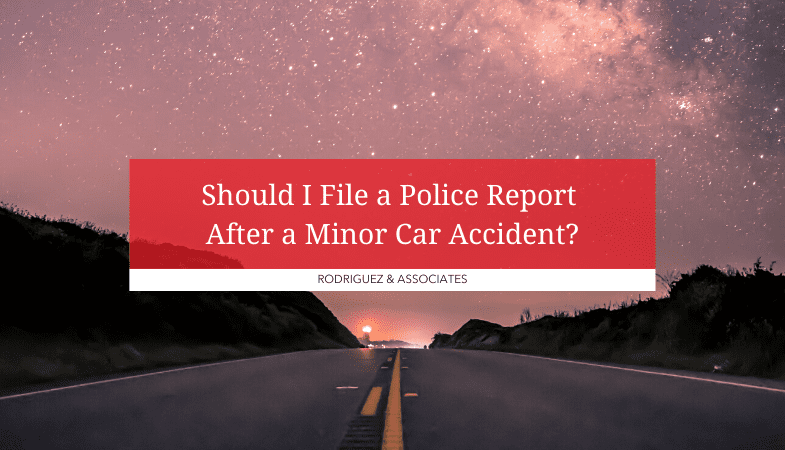Car accidents can range in severity from minor bumps to serious, multi-car collisions. If you are in an accident that does not result in severe vehicle damage or serious injuries, you may wonder if you need to file a police report or seek help for the accident at all. However, California laws require you to file police reports for certain accidents, and you may be suffering from underlying injuries or damages you may not be aware of yet. Working with a Bakersfield car accident lawyer from the start can be beneficial when figuring out your next steps.
California Car Accident Reporting Requirements
You may wonder if you have to report a minor accident to law enforcement or the Department of Motor Vehicles – but in some situations, the law will require you to. California Vehicle Code section 20008 requires that all drivers involved in a car accident – or someone who can represent the driver – must report certain collisions to either the police department where the accident happened or the California Highway Patrol.
If the crash involved any injuries or deaths, you will need to report the accident to law enforcement within 24 hours. If you call a law enforcement officer to the scene of the accident, he or she will prepare an accident report on your behalf and you will not need to file a separate report.
In addition, you will have to report the accident to the California DMV within 10 days if any of the following factors apply.
- Someone in the crash suffered an injury, including minor injuries.
- Someone died in the crash.
- The crash resulted in damage to property worth more than $1,000.
Why Do You Need to File a Police Report?
Car accidents can have many consequences that might not seem apparent at first. You may not feel like you are suffering from any injuries but may have a case of whiplash or internal injuries that do not appear until later. You may not notice any damage to your vehicle, or feel as if the damage is minor enough to pay for without insurance, and incur unexpectedly high repair costs later on.
If you do not file a police report after a minor crash, you may lose your chance at collecting the compensation you need to recover from the accident. Police reports are a crucial piece of evidence in insurance claim investigations and personal injury lawsuits. Failure to file a police report can harm your credibility since it indicates that at the time of the accident, you did not believe it was necessary or serious enough to contact law enforcement.
In addition, insurance companies can use statements that you said or the at-fault driver alleges that you said at the crash against you in your claim. For example, you may state that you do not have any injuries or that the damage is negligible, and the insurance company may use this as evidence to argue for a lesser settlement or even no settlement at all. Contacting law enforcement allows you to issue a formal statement to back your side of the story, and the responding officer may write an opinion about what he or she believes happened during the accident that you can use as a crucial piece of evidence in your claim or lawsuit.
What to Do After a Car Accident
If you are in a car accident, no matter how minor it may seem, it is important to call 911 and have police officers respond to the crash. The officer will then file a report that you can use as evidence in your claim, and you can also collect the necessary information from the at-fault driver to file your claim. You should also seek medical attention for any injuries, and save all records from your hospital visits.
If you are suffering from the aftermath of a car accident, even a minor collision, it is important to take the necessary steps to seek legal assistance. In these situations, a car accident lawyer can assist you with filing an insurance claim or personal injury lawsuit against the person at-fault for the collision. You may be eligible to seek compensation for medical expenses, property damage, lost wages, and more.
